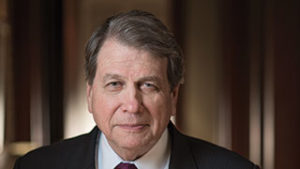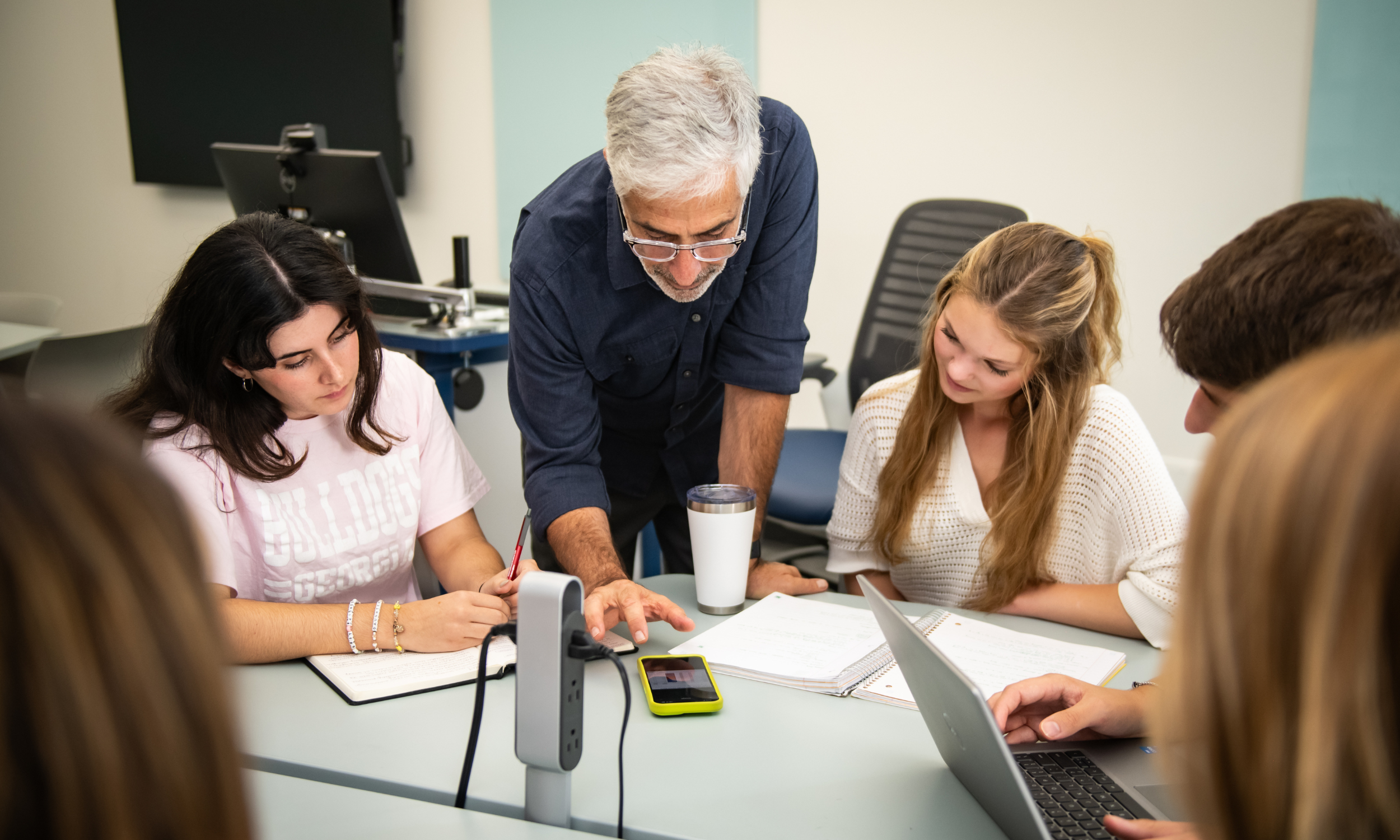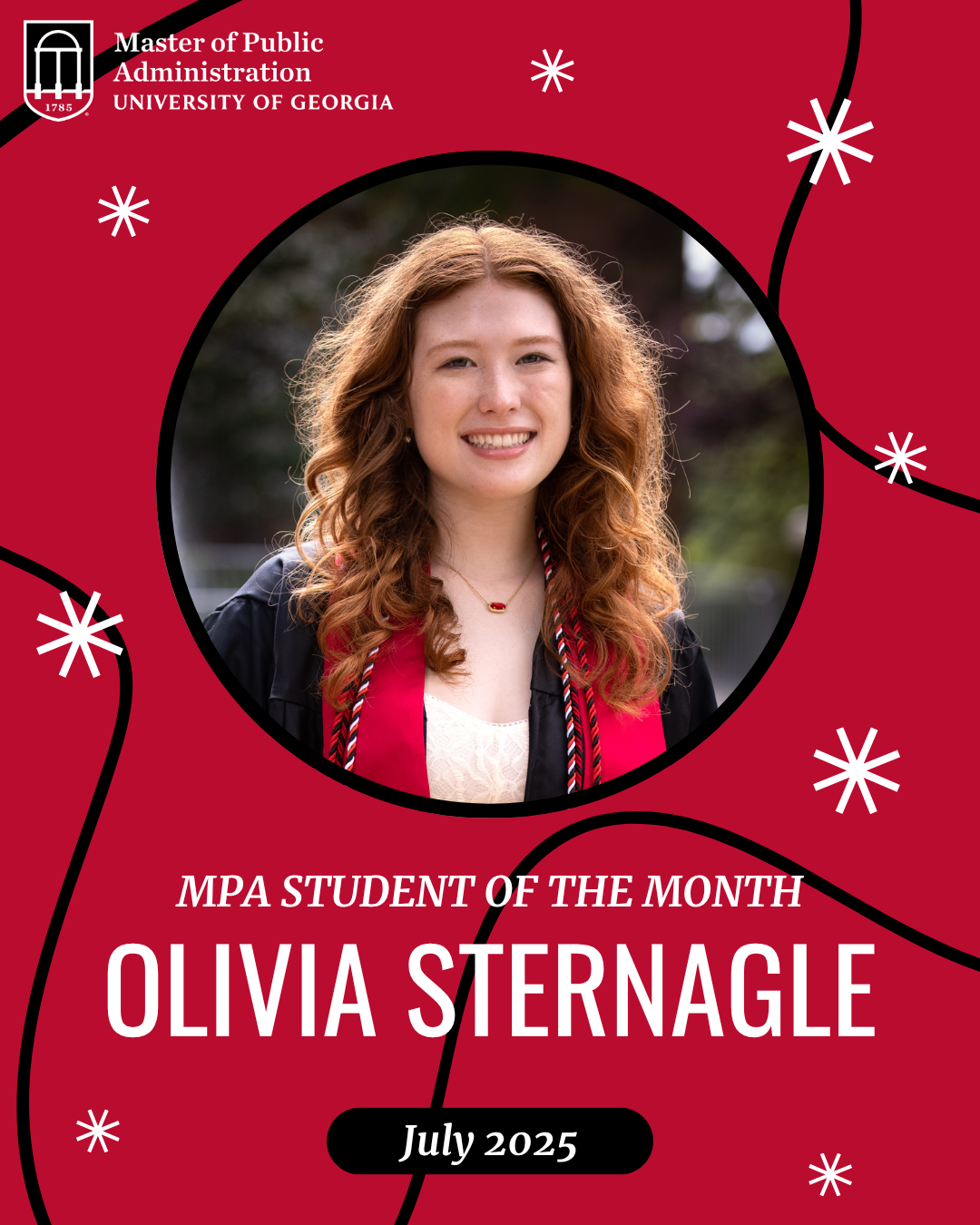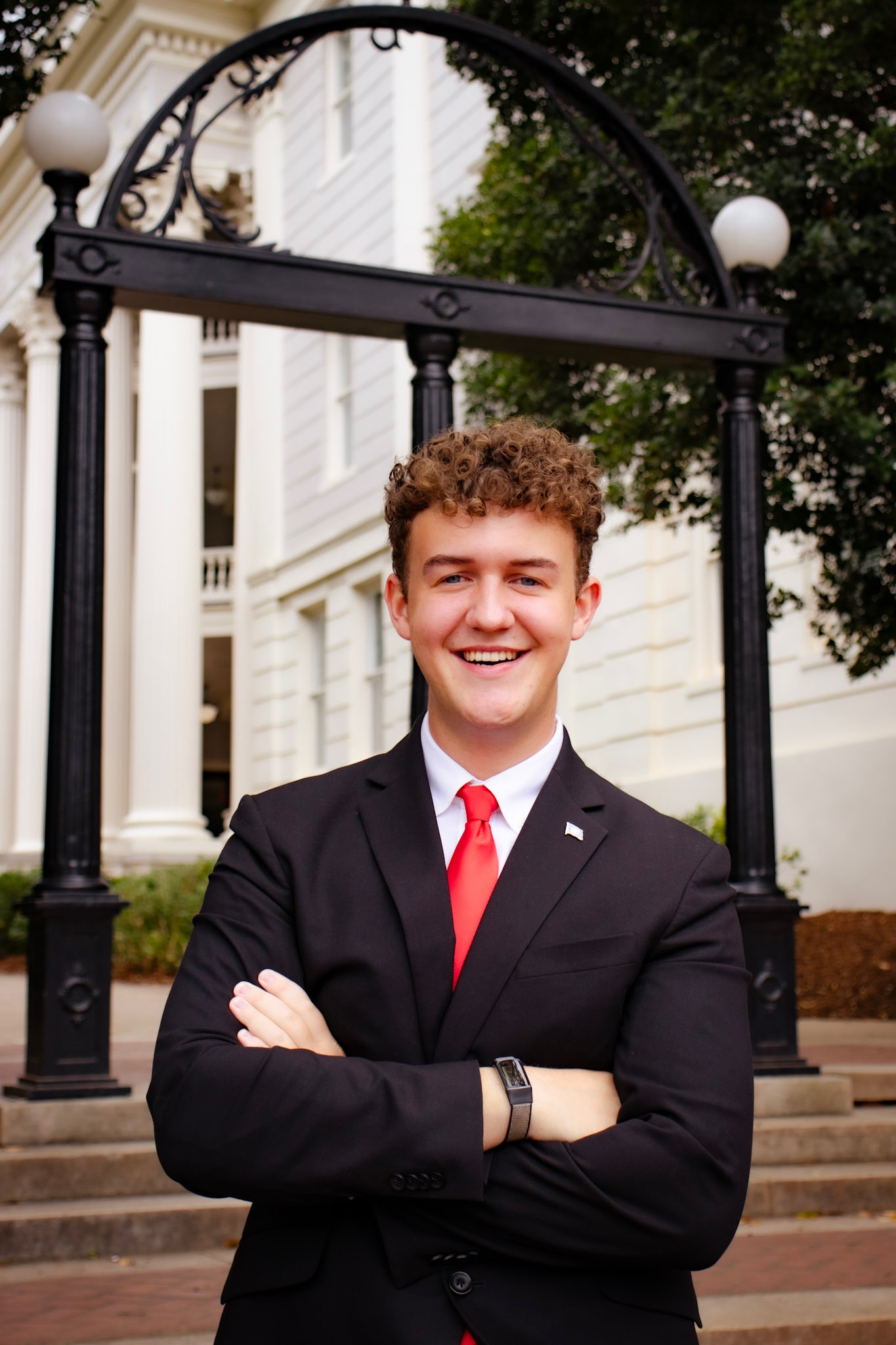
HEEDING THE CALL
Why Joe Whitley was tapped to become the first general counsel at the Department of Homeland Security
Original Story Published in 2018 Georgia Super Lawyers — March 2018
Early that morning, in a North Carolina hotel room, Joe Whitley received the phone call he had been dreading.
“My wife told me my father had just died,” he recalls. “He was a big influence on my life, and he had been suffering badly from Alzheimer’s.” Despite his grief, Whitley collected himself, squared his shoulders and embarked on his work that day—representing a witness in a court martial at Camp Lejeune.
But his day didn’t get any better.
“Someone had wheeled in a television set tuned to CNN,” he says. “The planes had just hit the twin towers of the World Trade Center. That’s how I learned the news on 9/11—just after my father died, surrounded by Marines, all of us riveted to the TV.”
In the course of that pivotal day, he rushed to a store to buy an earbud so he could safely talk on the phone while driving, then conferred with friends and colleagues who, like him, had worked in both public service and private practice.
“We all immediately wanted to go back to work for the government,” he says, sounding like a soldier roused by a bugle. “There was this great spirit of unity, of purpose, of all of us coming together. Strangers were helping each other. It was a much different time from today’s climate.”
As a U.S. attorney under President Reagan and an associate attorney general under President George H.W. Bush, Whitley had earned a reputation for thoughtful, effective, big-picture leadership, and Tom Ridge soon summoned him to the White House for several urgent meetings. The terrorist attacks were rapidly and radically redefining the landscape of Washington, D.C. A new agency, the U.S. Department of Homeland Security (DHS)—a sprawling, hydra-headed bureaucracy that combined 22 disparate federal departments into an integrated cabinet—had been created. It encompassed immigration and border enforcements; airplane and port safety; emergency management; and strategies to prevent every conceivable, unnerving scenario that would threaten national security. And President George W. Bush tapped Whitley to serve as its first general counsel.
“I guess my name just ended up on a list somewhere,” Whitley says, with characteristic understatement.
“You don’t earn appointments such as Homeland Security general counsel without solid bona fides,” says Ridge, who was the first secretary of the DHS. “But what really sets Joe apart is his integrity and a personal genuineness that is rare in D.C. As secretary, I appreciated both his smarts and his style—the same qualities appreciated by those who work with Joe today.”
Whitley made it a point to talk with representatives of the Treasury, State and Defense departments to get their input. He worked closely with his counterparts at the White House and the Department of Justice to coordinate counterterrorism initiatives. “I took the best ideas of everybody I encountered and folded them into my own design,” he says. “I was using a BlackBerry then, and I made a policy of responding to every single message on the day it was received.”
In his new role, Whitley provided counsel to Secretary Ridge (and later Secretary Michael Chertoff) while overseeing an office with more than 1,800 lawyers who provided legal advice to 180,000 employees. He handled a budget in excess of $10 million.
“It was the opportunity of a lifetime,” says Whitley, who stayed at the DHS for two years. “Some dedicated public servants and I were literally creating this brand-new agency from the ground up. I made it my goal to embed the right lawyers in every layer of this organization so that everyone could make sound, informed decisions from a legal standpoint. Many of them are still there today—operating on the template we first developed.”
Whitley is a broad-shouldered, physically imposing man, standing 6 feet 3 inches. In his office at Baker, Donelson, Bearman, Caldwell & Berkowitz, with a panoramic view of the Atlanta skyline and a treasured collection of Mark Twain hardbacks on his shelves, he seems to try to subvert this height advantage by leaning toward his listener. It’s almost like he’s bowing deferentially.
“I have had the privilege of knowing Joe for most of his career, having worked for him when he was U.S. attorney for the Middle District of Georgia,” says U.S. District Judge W. Louis Sands. “I … know him to be fair-minded, appropriately sensitive, considerate, and just a great person whose character equals his impressive physical stature.”
Whitley grew up in Columbus, where his father, Thomas, was president of Columbus State University. “I’m 100 percent Georgian, with red clay in my bloodstream,” Whitley says, noting proudly that his dad was from Irwin County and his mother from Walton County, and there are still family farms on both sides. His grandfather operated a cotton gin.
Yet despite all of his courtly Southernness, he does not speak with a drawl, and his storytelling is deliberate and methodical, with none of the florid embellishments that often characterize professional speakers below the Mason-Dixon line.
“Oh, the accent is there,” he says with a laugh. “It’ll come back when I’m having Thanksgiving dinner with my family, but I tone it down in the courtroom.”
Whitley graduated from the University of Georgia with a degree in political science. “I wanted to work either in foreign service or as a lawyer,” he says. “I settled on going to law school at UGA.”
Everyone should settle so well. Georgia has three federal districts, and Whitley has served as leader in two of them. During the 1980s, he was U.S. attorney in the Middle District of Georgia, based in Macon; and during the George H.W. Bush administration, he did the same in the Northern District out of Atlanta. “I enjoyed being a U.S. attorney so much that I have always wondered what it would be like to play that role in all of the districts,” he says.
During his tenure in the Northern District, Whitley participated in an explosive corruption probe of the Hartsfield-Jackson Atlanta International Airport that created racial divisions in the city. The FBI and the U.S. Attorney’s Office led the investigation, which dragged on for years. It focused on kickbacks and the awarding of contracts for concessions.
At the time, Rick Deane was in charge of the office’s criminal division. “Joe is very, very careful in his analysis,” says Deane, who knew Whitley in law school. “He uses his authority very judiciously in every case. With the high-profile ones, he lays out factual diagrams that are so thorough and thoughtful.”
Whitley recalls the early stages of the airport case. “After getting briefed by Deane,” he says, “we discussed who in our office might be the best prosecutor to lead the investigation and handle any prosecutions growing out of the case. Rick recommended a younger AUSA by the name of Sally Yates, and, based on Rick’s recommendation and my own evaluation, Sally was designated to handle the case. Of course, years later Sally served as U.S. attorney in Atlanta and as the deputy attorney general.”
The investigation ultimately led to the 2004 arrest of the former mayor, Bill Campbell.
“I am very proud of the work we did in the Atlanta airport case and many others,” Whitley says. “Our office handled numerous other cases of a high-profile nature growing out of criminal misconduct that occurred at several Fortune 500 companies. During my tenure as U.S. attorney, we never let the stature of the company or the individual under investigation interfere with following the evidence where it led us.”
After the Oklahoma City bombing in 1995, he and Frank Keating chaired a terrorism program at Oklahoma City University.
“We were both U.S. attorneys at the same time,” says Keating, now at Holland & Knight. “He may appear low-key, but he is really high-energy and focused. A total professional.”
In the end, the university’s law school established a legal study program, which, during its existence, brought together former and current officials to prepare for the practical legal challenges surrounding acts of terrorism. “Its success could not have occurred without Joe Whitley,” Keating adds.
Linda Klein, the first woman president of the state bar of Georgia, recruited Whitley to work at Baker Donelson. “He is the poster child for humility, and that quality has served him well,” she says. “He is generous in mentoring young lawyers, and he’s the kind of person whose door is always open.”
At Baker Donelson, Whitley specializes in white-collar criminal matters, corporate internal investigations and foreign corrupt practices. He has held several conferences on cybersecurity, and he is working with at least one famous client connected with the shadowy world of cyberterrorism: Reality Winner, the 26-year-old National Security Agency contractor and Air Force veteran who is accused of leaking a top-secret report about Russian meddling in the 2016 election. A federal grand jury has indicted her on a single count of “willful retention and transmission of national defense information.” She faces up to 10 years in prison and $250,000 in fines.
Whitley won’t talk about the case, but Winner’s mother, Billie Winner-Davis, released a statement: “I am very excited about Mr. Whitley joining Reality’s defense team,” she said, “as he appears to have extensive experience. His background with homeland security should be helpful.”
People often ask Whitley if he would return to public service, given the opportunity, and some admirers have floated the idea of a gubernatorial run. But the prospect of campaigning makes him wince. “If I could be appointed governor, I would serve,” he says, “but I don’t think I’ll be going back into that line of work. It’s time for others to step up in those roles. I just feel honored to have played a part in defending the Constitution and the Bill of Rights.
“We may not always agree with each other in America, but we are a nation of laws, not of men.”
Regs ‘R’ Us: Whitley on the early days of the DHS
There were many issues that my office handled that were both gratifying and riveting at the same time. Some of our legal advice was precedent-setting—like determining the legal authority for turning around jetliners bound for a U.S. landing with only minutes to spare. From that excitement, we dealt daily with standing up the regulatory infrastructure of a brand-new department. We developed so many regulations—that were needed to ensure the safety of U.S. infrastructure like chemical plants, electrical power plants and water purification facilities—that I said we were like a version of a store that sold regulations: “Regs ‘R’ Us.”
Most of all, we needed to be at the elbow of the leaders and decision-makers at DHS. So with protecting America and Americans as our daily mission, every decision needed to be vetted to ensure the safety of our society and way of life that was consistent with the protections afforded by the Constitution and Bill of Rights and laws enacted by Congress. For me, this meant providing our leaders with a way to do things that accomplished these things: always trying to say yes to leadership but giving them other options that would pass scrutiny by Congress and the courts.
Throughout my tenure, I never forgot the emotions that I felt on 9/11 and the innocent men and women who died that day. On the day I was initially sworn in by a DHS employee—before my official ceremony after my Senate confirmation—I recall how emotional the employee was. I asked her what was causing her tears and she said, “I am so proud to be with you, sir, at this moment. I am honored to be swearing you in. Thank you for your service to America.” It was the most humbling moment I experienced as I was about to take on my duties. I told her that the honor was mine to be with her and all of the people like her at DHS.
—Joe D. Whitley
(Image by Stan Kaady)









